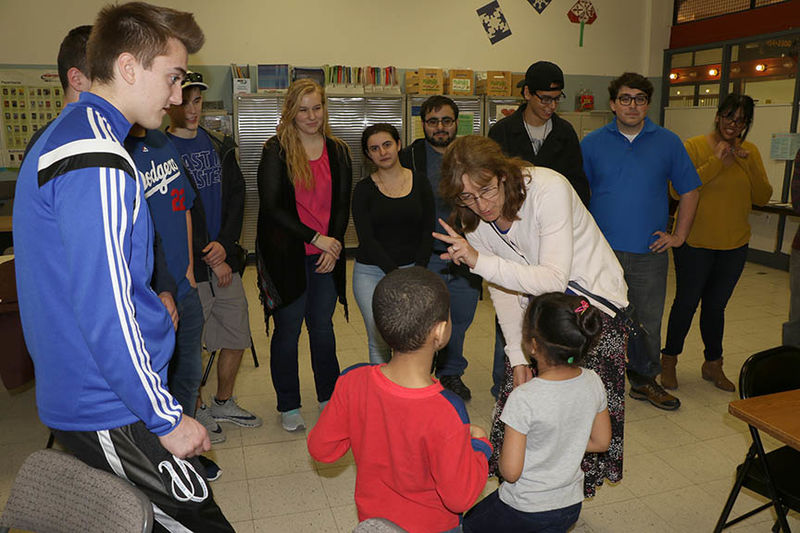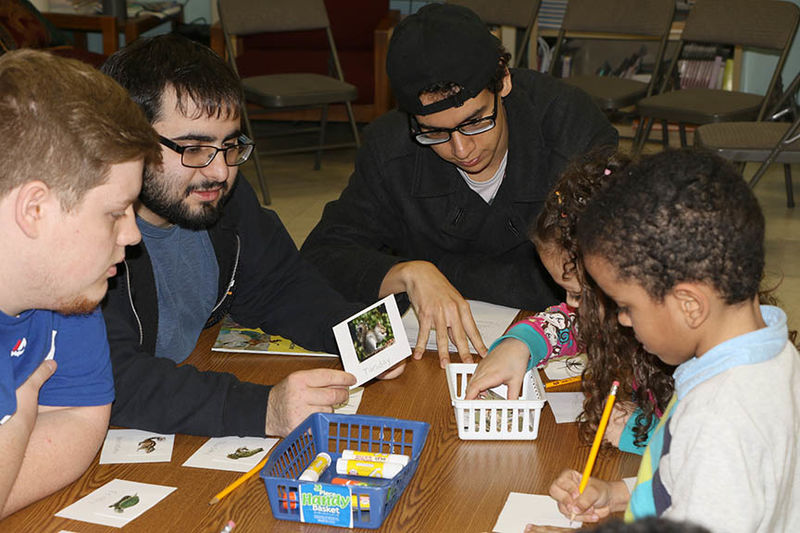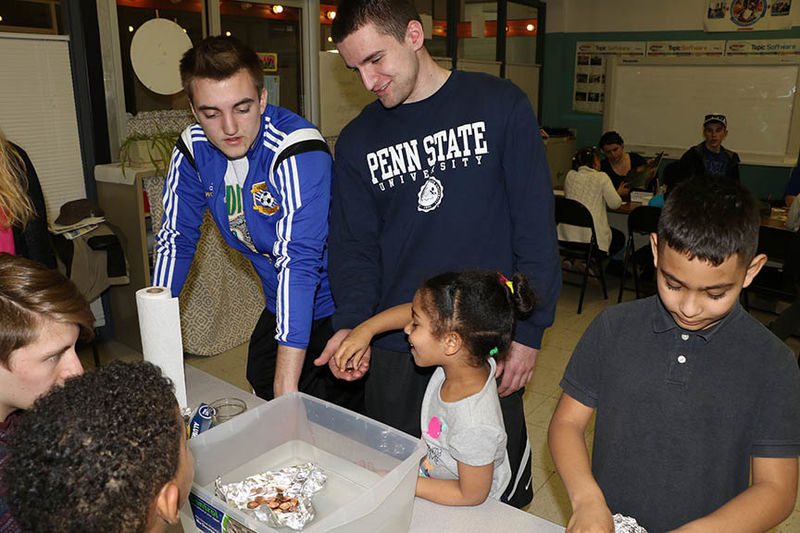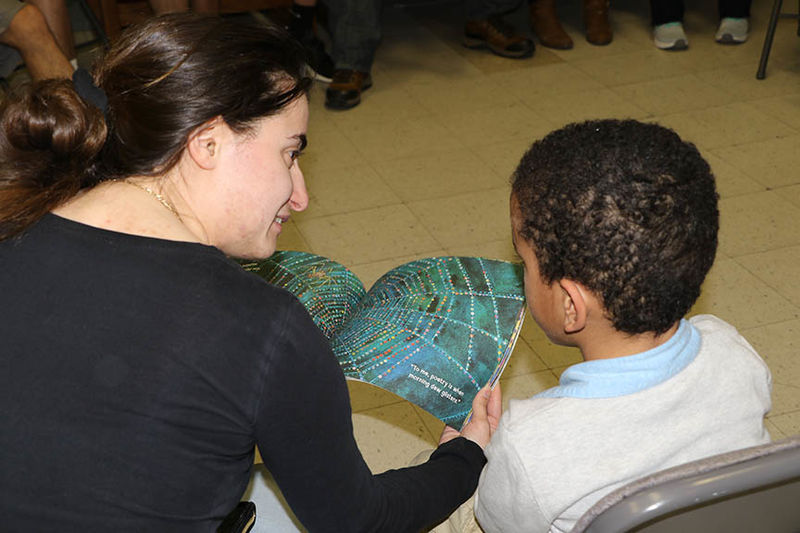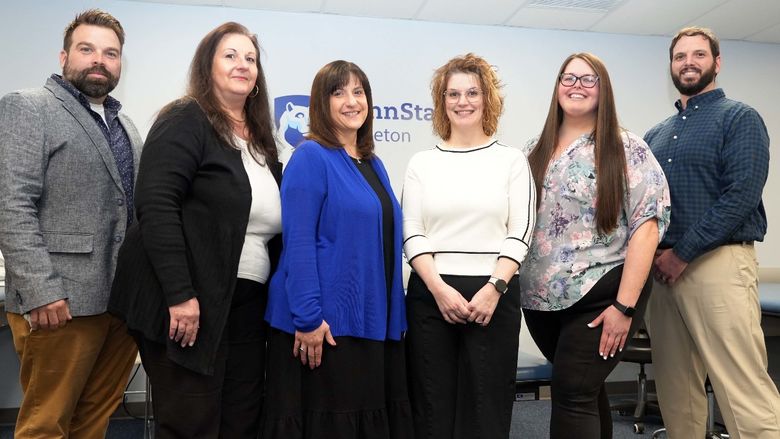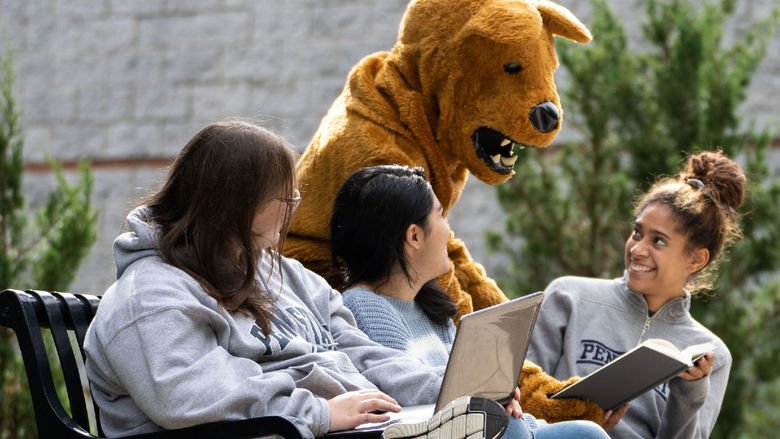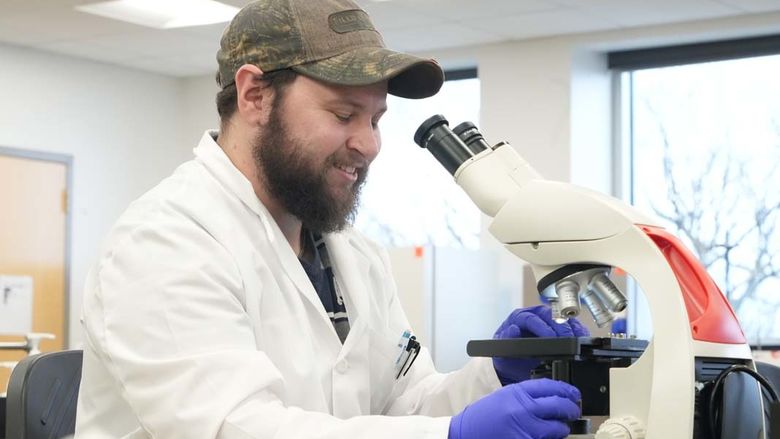Campus students help tutor children in downtown Hazleton
They’re all students, but some are just learning how to read while others are learning advanced lessons about finance, engineering and psychology. But together, they learned valuable lessons about helping others and working collaboratively.
Students of Beatriz Garcia Glick, instructor in Spanish and French, recently spent some time with children in the Northeast Pennsylvania Migrant Education Program in downtown Hazleton reading a book and leading activities that related to the book.
The opportunity developed as part of Glick’s partnerships in Greater Hazleton that enable her students to serve their community.
“I believe that learning extends beyond the classroom walls. Also, we are lucky to have a Latino community in Hazleton. For the past eight years, I have been offering extracurricular activities to my students, including events that take place in Hazleton and this is one of those activities,” she said.
As eight children in the Northeast Migrant Education Program streamed into the room on a recent afternoon, their personalities quickly became evident. Some held back more while others began chatting exuberantly with the Penn State students and encouraging their quieter peers to introduce themselves.
“These are our guests today and they’re going to be your teachers,” said “Miss Judy” Rodriguez, student support specialist with the Central Susquehanna Intermediate Unit’s Migrant Education Program, introducing the college students. Volunteers that day were Glenn Blessington, a junior psychology major from Hemlock Farms: Mari Magabo, a junior engineering major from Hazleton: Andrew Vargas, a sophomore psychology major from Hazleton; Jeremy Nenstiel, a junior psychology major from Hazleton; Giovanni DiBlasi, a sophomore computer science major from Hazleton; Veronica DiBlasi, a sophomore finance major from Hazleton; Dixie McCoy, a liberal arts major from Watsontown; Brian Fisher, a first-year student from Nesquehoning majoring in security risk analysis; Christian Kintz, a first-year student from Mountain Top majoring in security risk analysis; Michael Paranich, a first-year student from Mountain Top majoring in finance; and Adrik Woodard, a first-year student from Millerstown majoring in data sciences.
The group formed a circle with the older students reading the book “Daniel Finds a Poem” to the children, passing it around the circle as they read. While reading, the students asked questions to get their young pupils engaged in the story. As they discussed the animals in the book and other topics, they learned a few things they had in common.
After the story, the students headed to two separate activity stations. In one group, the children glued animal cutouts to pieces of paper that named the animal in English and Spanish. In the second group, the children used foil to create a boat that they placed in the water, experimenting to see how many pennies they could put in until it sunk.
The activities and book, which each child received a copy of to take home, came from the Pennsylvania “One Book, Every Young Child” program, which the Migrant Education Program uses for students in kindergarten through second grade.
Susan Luna, student support and parent coordinator for the Northeast Pennsylvania Migrant Education Program, said the activities came from online resources and lesson plans suggested to accompany the book as part of the STEAM (science, technology, engineering, arts and mathematics) initiative.
“Activities like this give the students one-on-one attention that meets their needs. Some may need more support or some less. It’s great for the Penn State students to be involved in their community and give back,” Luna said.
For some of the Penn State students, it was their first time working with children.
Veronica DiBlasi, who has tutored her college peers but not children, said, “Dr. Glick often offers activities like this. It sounded like an interesting way to use my Spanish skills and what I’m learning in class while helping with the children.”
For others, it was a great way to serve the region where they study and where many of them live.
“I used to tutor little kids when I was in middle school and I really liked that,” Mari Magabo said. “I wanted to work with kids and also wanted to give back to the community.”
Andrew Vargas said, “I want to see growth in children. This is a good opportunity to help them learn or polish important skills.”
Glick was pleased to see her students taking part in the intergenerational activity and growing as members of the community, saying, “They realized that teaching is a great responsibility and I hope that they learned that the more we know about others, the more we are willing to find common ground.”
The Penn State students were also well received by their pupils.
“I liked having them here, because I needed a little bit of help making my boat. And I loved them reading to us,” said Jeileennys King.
